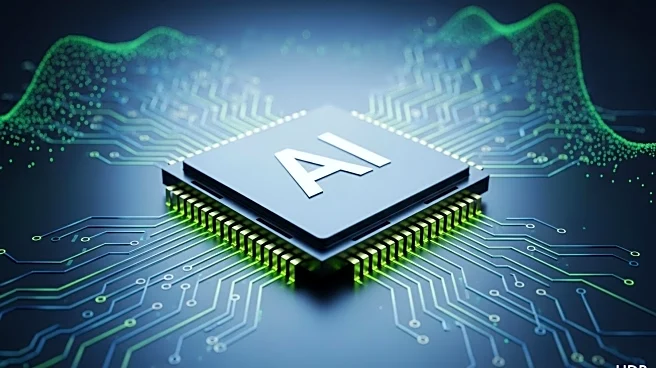What is the story about?
What's Happening?
Nvidia CEO Jensen Huang has commented on the current state of the artificial intelligence race between the United States and China, stating that the U.S. is 'not far ahead' of China. Huang emphasized the need for a 'nuanced strategy' to maintain the U.S.'s competitive edge. Despite the U.S. leading in advanced chip designs, such as Nvidia's Blackwell processor, Chinese companies like Huawei are advancing their computing systems to power domestic chips. Alibaba and Baidu have reportedly begun using internally designed chips to train AI models. Huang praised China's AI models, including DeepSeek, Alibaba, and Baidu, noting that while U.S. models are more advanced, China's open-source models are 'well ahead.'
Why It's Important?
The comments from Nvidia's CEO highlight the competitive nature of the AI industry, where both the U.S. and China are vying for technological supremacy. The development of domestic chips by Chinese companies represents a strategic move to reduce reliance on U.S. technology, potentially impacting global tech dynamics. This competition could influence policy decisions, trade relations, and investment strategies in the tech sector. Companies in the U.S. may need to innovate rapidly to maintain their lead, while Chinese firms could gain market share by advancing their AI capabilities.
What's Next?
As the AI race continues, both countries are likely to increase investments in research and development to enhance their technological capabilities. The upcoming meeting between President Trump and Chinese President Xi Jinping at the APEC South Korea summit may address these technological tensions and explore potential collaborations or agreements. Stakeholders in the tech industry will be closely monitoring these developments, as they could have significant implications for international trade and technology policies.
Beyond the Headlines
The AI race between the U.S. and China also raises ethical and security concerns, particularly regarding data privacy and the use of AI in surveillance. As both countries develop more sophisticated AI models, there may be increased scrutiny on how these technologies are deployed and regulated. Long-term shifts in global tech leadership could emerge, influencing economic power balances and international relations.















